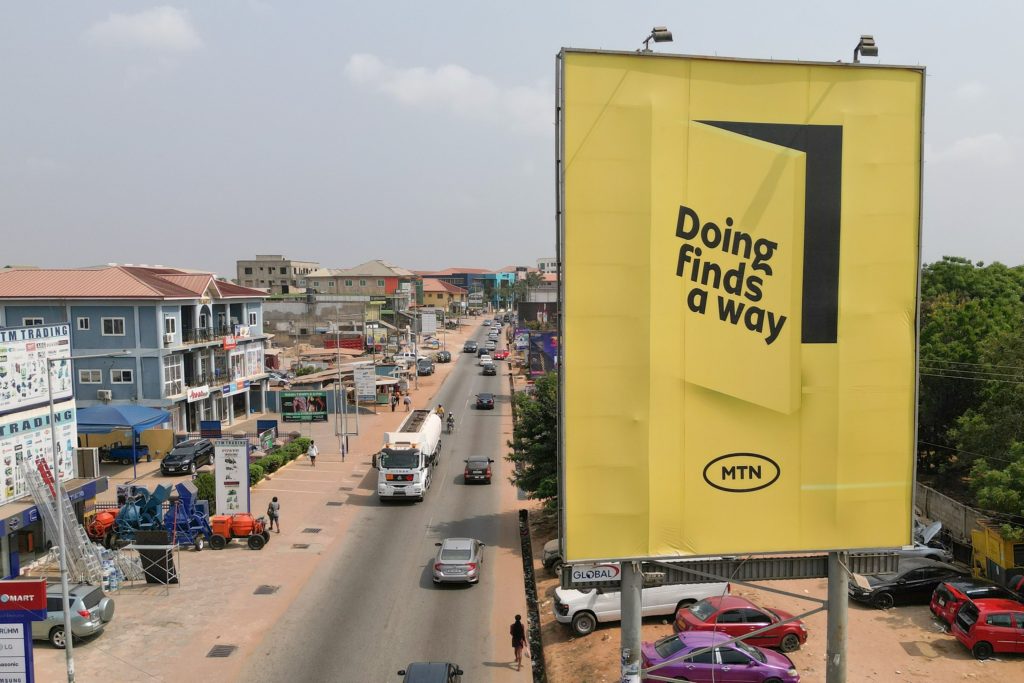Just over 20 years ago, MTN completed one of its most ambitious projects in Nigeria when it installed a high-capacity digital microwave transmission backbone in January 2003.
The infrastructure project – a first in Nigeria and spanning over 3 400km – reflected the extraordinary commitment that MTN had made to the continent as part of its push to be the leading telecommunications provider in sub-Saharan Africa.
As a company that originated in Africa’s most industrialised nation, MTN’s investments across Africa injected much-needed momentum in the modernisation of the continent’s telecommunications infrastructure.
While Africa was regarded as a red flag for multinational expansion – the World Bank estimated that of the 35 least business-friendly countries in the world, 27 were in sub-Saharan Africa – the potential for success in a growing continent was regarded as a risk worth taking.
Companies like SABMiller, Tiger Brands, Shoprite and MultiChoice went into continental expeditions that promised much in the way of success but also carried significant risks.
The problem for such companies is that the risks were not limited to operational and strategic risks. Instead, a combination of political chaos occasioned by the occasional regime change introduced a new risk of operating in Africa – exploitation through fines and taxes.
MTN Nigeria fine
In 2015, MTN announced that it was facing a fine of $5.2 billion (close to R95 billion at the current rate of exchange) from the Nigerian Communications Commission as a penalty for failing to disconnect over five million unregistered SIM cards from its network.
The genesis of the problem seems to have been the historically lax enforcement of rules in Nigeria, which may have led MTN to assuming that it could get away with not implementing the directive.
When the fine was announced, it represented an instance of the regulator showing its muscle and seeking punitive damages against the multinational company.
The quantum of the fine was later reduced to just over $1.6 billion (just over R29 billion in today’s terms) on the back of spirited negotiations by Phuthuma Nhleko who had been forced to replace Sifiso Dabengwa as CEO.
Less than three years later, the Nigerian Attorney-General hit MTN with a claim for $2 billion (R36.5 billion) in unpaid taxes. This was eventually dropped after 16 months of confrontations.
Read:
The background to MTN’s fine in Nigeria
Nigerian minister tells MTN to drop lawsuit over fine
How MTN sliced billions off its Nigerian telecoms fine
For most companies, these incidences of conflict would be enough to justify an exit from the country.
Cost of doing business in Africa
Given the significant investments made in the country and the lucrative nature of its customer base, MTN’s call to negotiate and remain in the country reflected the delicate balance between risk and pragmatism that many South African companies have concluded is the cost of doing business in the continent.
Unfortunately for MTN, these events seem to have created the impression that once it is invested in a country, it is an easy target for windfall taxes and fines.
At the beginning of this year, as Ghana faced a sovereign credit crisis and an inflation rate of over 50%, it suddenly discovered that various multinational companies – including MTN – owed it millions of dollars in unpaid taxes.
In the case of MTN, the claim of $700 million implied that the company had underdeclared its income by 30% between 2014 and 2018. Such developments have not been limited to MTN.
Its competitor Vodacom faced a $243 million claim for unpaid taxes in the Democratic Republic of Congo in 2022.
MultiChoice – the other South African company with a significant footprint in Africa – was charged $4.4 billion in unpaid taxes by the Nigerian authorities in 2021.
Read:
MTN commits to R18bn Ghana investment after government scraps tax claim
MTN plans to dispute $773m Ghana tax bill if talks fail
Nigeria settles $4.4bn tax dispute with MultiChoice
The frequency of these events, and the quantum of the amounts claimed, is indicative of the bigger political wars where South African entities are regarded as easy targets given the scale of their operations and the view that their pockets are deep enough to withstand the fines and taxes.
In response to the Ghana claim against MTN, Naledi Pandor – the Minister of International Relations – stepped into the fray by issuing a rare statement pleading for cool heads and highlighting the importance of South African businesses to the continent at large.
Whether this was decisive in the case of MTN and Ghana may never be known beyond the confines of diplomatic correspondence, but we do know that the Ghanaian authorities immediately dropped the claim against MTN.
While this instance of economic diplomacy may have been useful, it is not a remarkably reliable model for settling commercial disputes.
The effectiveness of it all is a combination of the strength of the allegations, the capacity of the law to adjudicate fairly in disputes between the affected nation and a foreign company, plus the prevailing political consensus of the day.
For companies like MTN and MultiChoice that have significant investments in the ground, the ability to simply walk away is far less linear than for companies with a smaller footprint.
Where declining economic prospects and desperate politicians are the most fundamental risk, the challenge for executives is to work out whether the risk associated with remaining invested is something they are willing to live with in exchange for returns that are as lucrative for shareholders as they are for desperate politicians and regulators eager to balance their own books.
Read:
Shoprite sells its Nigerian operations
Massmart in talks to close Game stores in East, West Africa
Mr Price pulls plug on Nigeria
Khaya Sithole is a chartered accountant, activist and academic. He writes and tweets on matters of politics, economics, finance and social justice. In his spare time, he deals with spreadsheets for various clients in the consulting arena.




